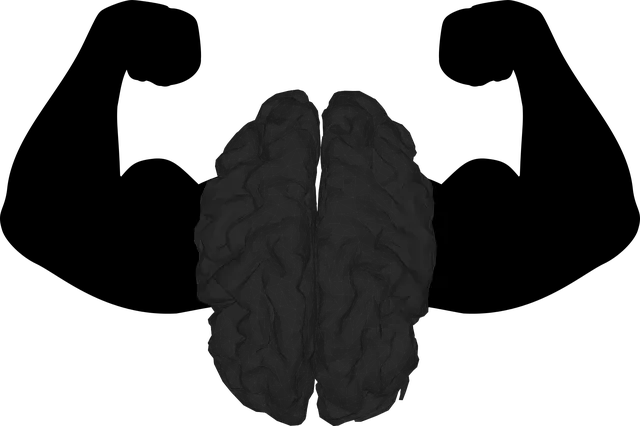Lafayette Kaiser Permanente mental health services prioritize risk assessment through evidence-based methods, client safety, and wellness coaching, reducing mental illness stigma. They face unique challenges with proactive strategies like effective communication, stress reduction, and mental health awareness programs. Strict ethical standards guide professional risk management, fostering a culture of resilience through self-care, positive thinking, crisis intervention, and peer support. Robust risk mitigation includes Inner Strength Development, regular self-care routines, and structured breaks to minimize burnout. Digital era innovations like online platforms and telemedicine expand access, with virtual workshops for Stress Reduction and Resilience Building, enhancing community connection.
Mental health professionals encounter a unique spectrum of risks daily. This article explores comprehensive risk assessment within the context of Lafayette Kaiser Permanente mental health services, delving into critical components such as understanding risk assessment, identifying potential hazards, ethical considerations, and effective strategies for management. We also examine the role of technology in enhancing safety measures, highlighting the significance of a robust system like Lafayette’s in mitigating risks within this essential service sector.
- Understanding Risk Assessment in Mental Health Practice
- Identifying Potential Risks in Kaiser Permanente's Mental Health Services
- Ethical Considerations for Mental Health Professionals
- Strategies for Effective Risk Management
- The Role of Technology and Lafayette's Impact
Understanding Risk Assessment in Mental Health Practice

Risk assessment is a crucial aspect of mental health practice, enabling professionals to identify and mitigate potential hazards within their services. At Lafayette Kaiser Permanente Mental Health Services, this process involves a comprehensive evaluation of various factors that may impact client safety and well-being. By integrating evidence-based methods and tailored interventions, the team ensures effective management of risks associated with mental illness.
The Risk Assessment for Mental Health Professionals goes beyond identifying vulnerabilities; it fosters a proactive approach to promote mental wellness coaching programs development. This strategic focus not only enhances service delivery but also contributes to Mental Illness Stigma Reduction Efforts, creating an inclusive and supportive environment for all clients.
Identifying Potential Risks in Kaiser Permanente's Mental Health Services

At Lafayette Kaiser Permanente mental health services, several potential risks can be identified that require careful consideration and proactive management strategies. The demanding nature of providing mental health care, coupled with the sensitivity of patient cases, necessitates a comprehensive risk assessment framework. One key area is ensuring effective Communication Strategies between healthcare professionals, patients, and their families to foster trust and understanding while mitigating potential misunderstandings or miscommunications that could lead to adverse outcomes.
Additionally, the high-stress environment within mental health services calls for the implementation of Stress Reduction Methods to safeguard both staff and patient well-being. Regular training in stress management techniques, support groups, and accessible counseling services can help mitigate burnout, enhance resilience, and contribute to a healthier work environment. Promoting Mental Health Awareness through educational programs and open discussions can also foster a culture that prioritizes mental health, reduces stigma, and encourages early intervention and treatment seeking among patients.
Ethical Considerations for Mental Health Professionals

Mental health professionals are bound by a code of ethics that guides their practice and decision-making. When conducting risk assessments, they must prioritize client welfare while maintaining professional boundaries. This involves considering potential risks associated with the therapeutic relationship, such as burnout, empathy fatigue, or countertransference, which can impact both the practitioner’s mental health and the quality of care provided.
At Lafayette Kaiser Permanente mental health services, professionals are encouraged to integrate self-care practices and positive thinking as strategies for mitigating these risks. Regularly seeking crisis intervention guidance and peer support ensures practitioners remain equipped to handle complex cases and maintain their well-being. By adhering to ethical standards and fostering a culture of resilience, these measures contribute to a healthier and more sustainable practice environment.
Strategies for Effective Risk Management

Mental health professionals, like those at Lafayette Kaiser Permanente mental health services number, face unique challenges that require robust risk management strategies. One key approach is cultivating Inner Strength Development. This involves fostering resilience and coping mechanisms to navigate demanding situations with composure. By prioritizing self-care, including regular Stress Management practices, professionals can maintain optimal performance while minimizing potential risks.
Additionally, establishing a structured Self-Care Routine Development for Better Mental Health is paramount. Regular breaks, mindfulness exercises, and engaging in hobbies outside of work contribute to overall well-being. These strategies not only enhance professional satisfaction but also ensure the delivery of high-quality care to clients, ultimately mitigating risks associated with burnout and decreased performance.
The Role of Technology and Lafayette's Impact

In today’s digital era, technology plays a pivotal role in enhancing mental health services, and Lafayette Kaiser Permanente has recognized this potential. Their commitment to integrating innovative solutions is a game-changer for delivering accessible care. Through online platforms and telemedicine, mental health professionals can now reach a wider community, offering support to those who may face barriers to traditional in-person therapy. This shift not only expands the scope of services but also ensures that individuals in remote areas or with limited mobility have equal access to expert care.
The Community Outreach Program Implementation by Lafayette Kaiser Permanente further underscores their dedication to mental wellness. By utilizing technology, they can provide Stress Reduction Methods and Resilience Building workshops virtually, fostering a sense of community and connection. This digital approach has proven invaluable during the pandemic, ensuring that individuals could still access support and connect with peers from the safety and comfort of their homes. Such initiatives showcase how technology empowers mental health professionals to create a more inclusive and responsive support system.
Mental health professionals in organizations like Lafayette within Kaiser Permanente’s network must navigate complex ethical and practical challenges. By understanding risk assessment, identifying potential dangers, and adopting effective management strategies, practitioners can ensure a safer environment for patients and themselves. The integration of technology plays a significant role, offering both opportunities and considerations that contribute to enhancing mental health services’ overall quality and resilience. This comprehensive approach to risk assessment is essential in addressing the unique challenges within this sector, ultimately fostering more secure and productive treatment outcomes.


